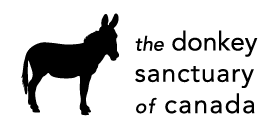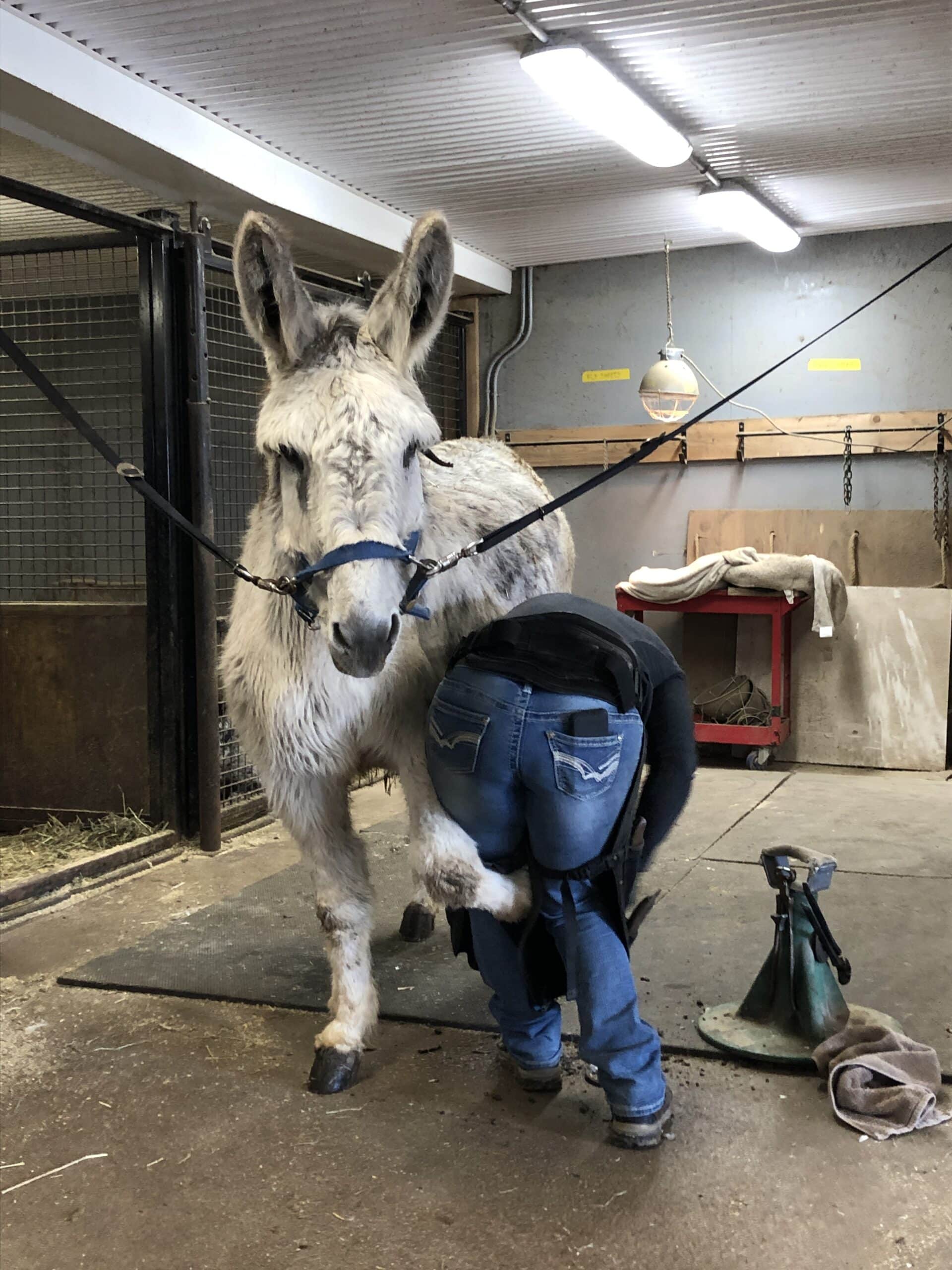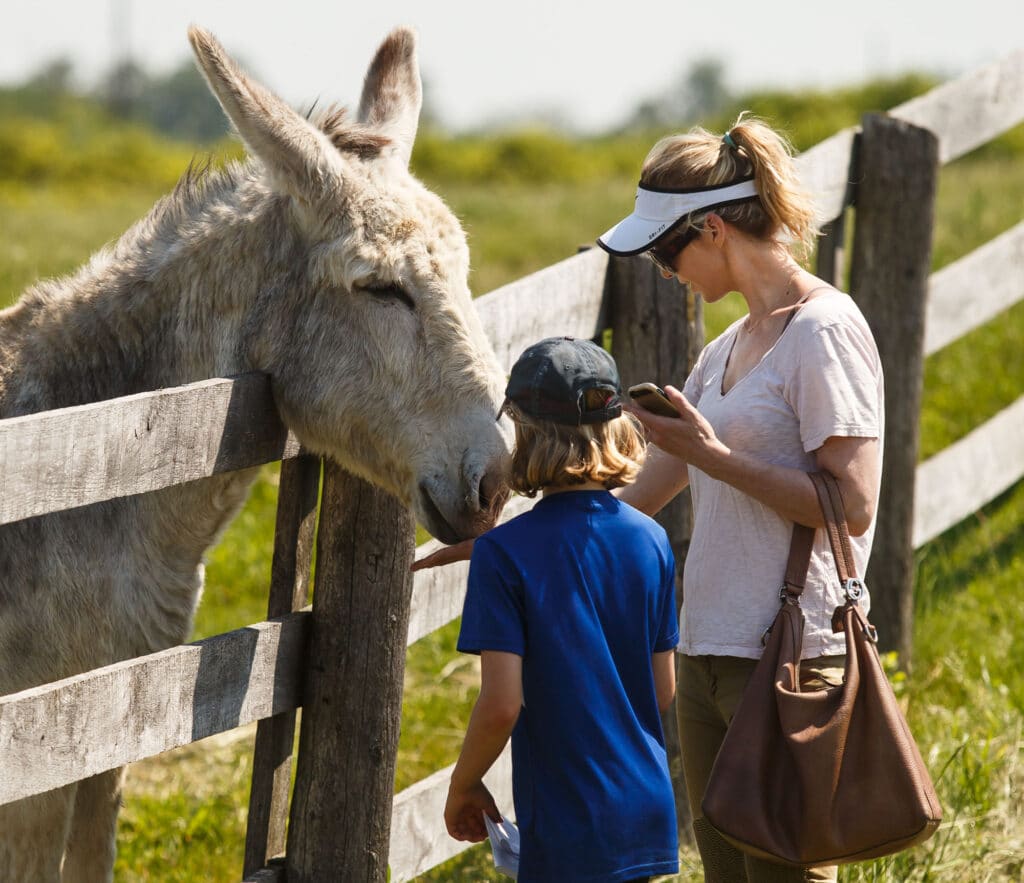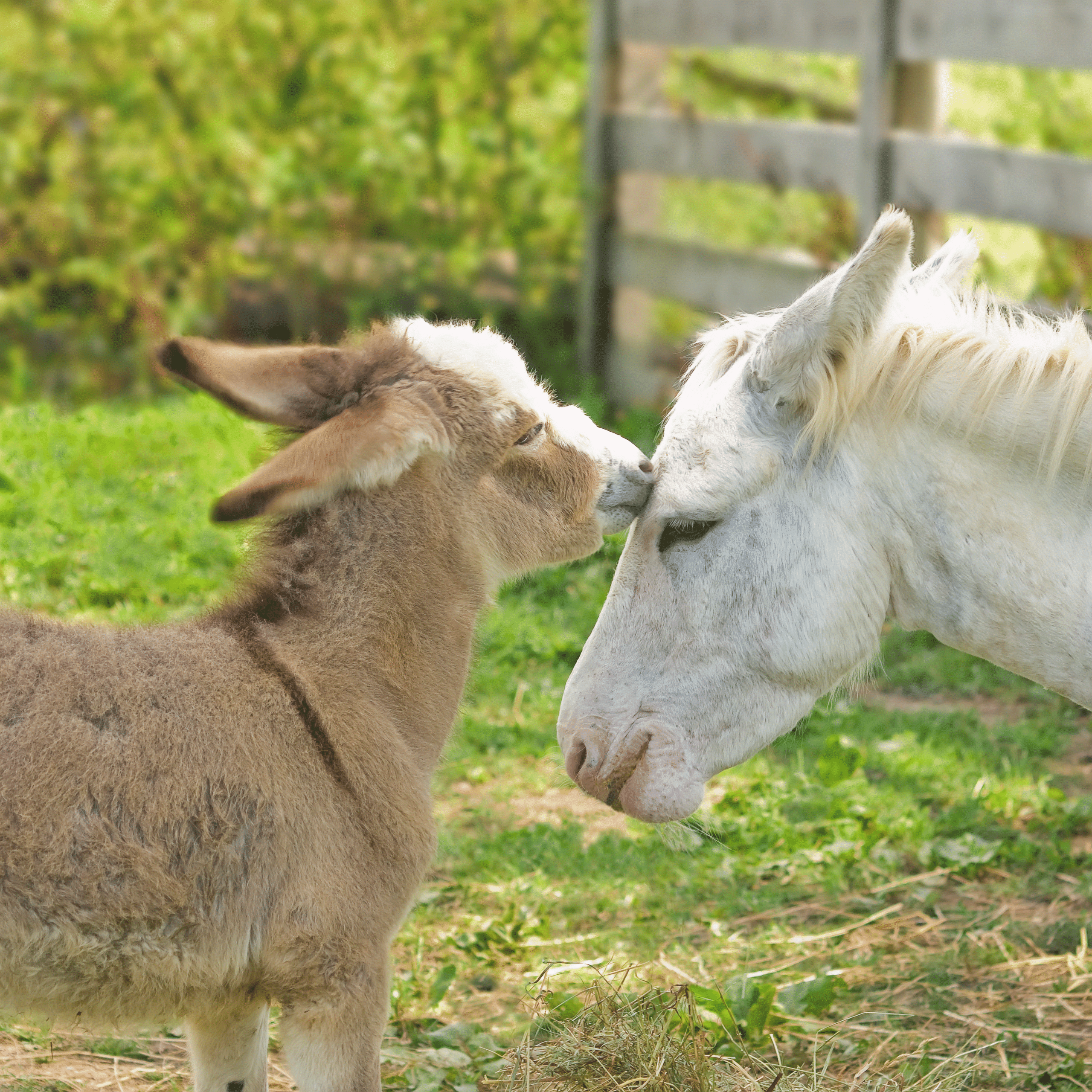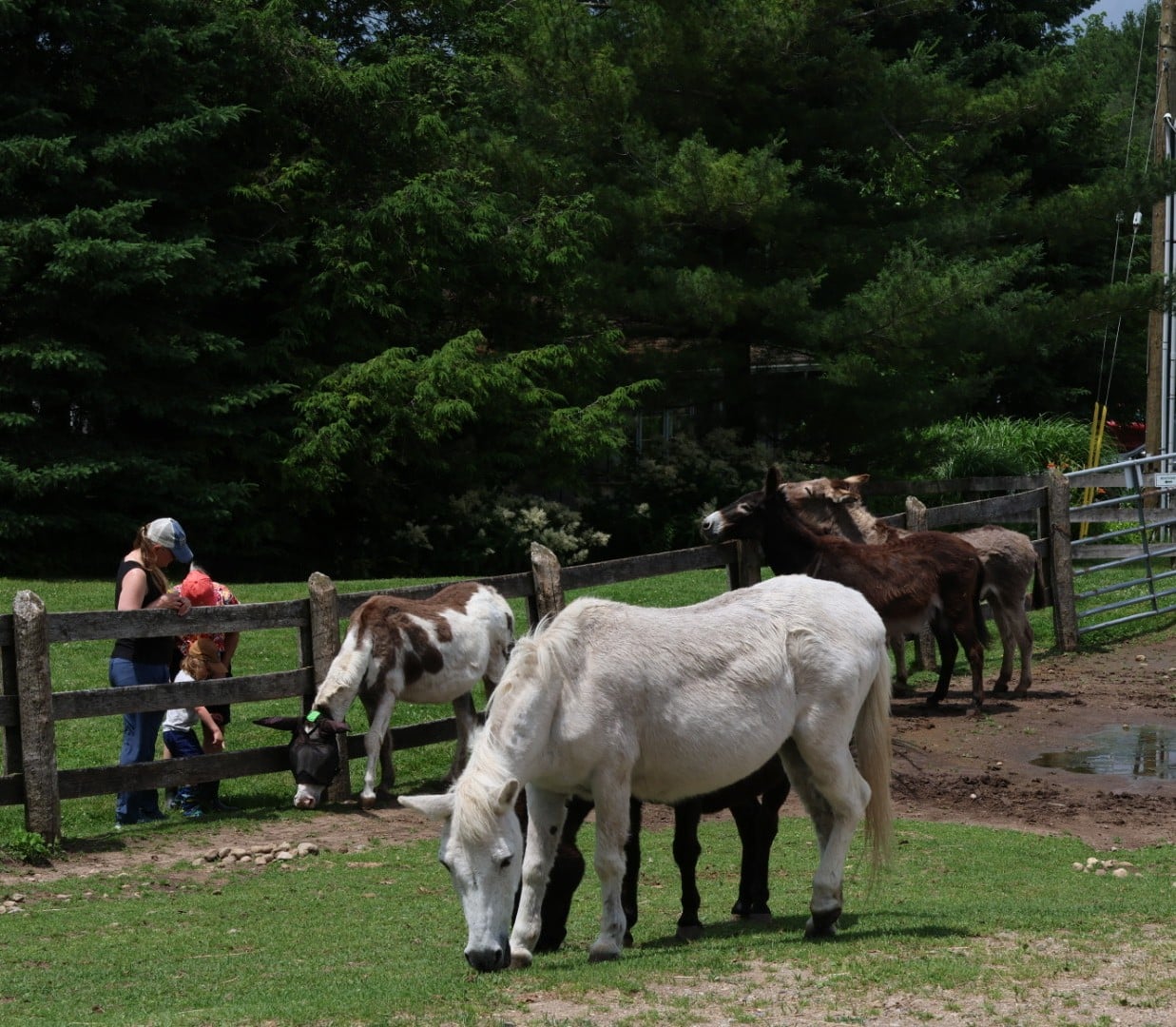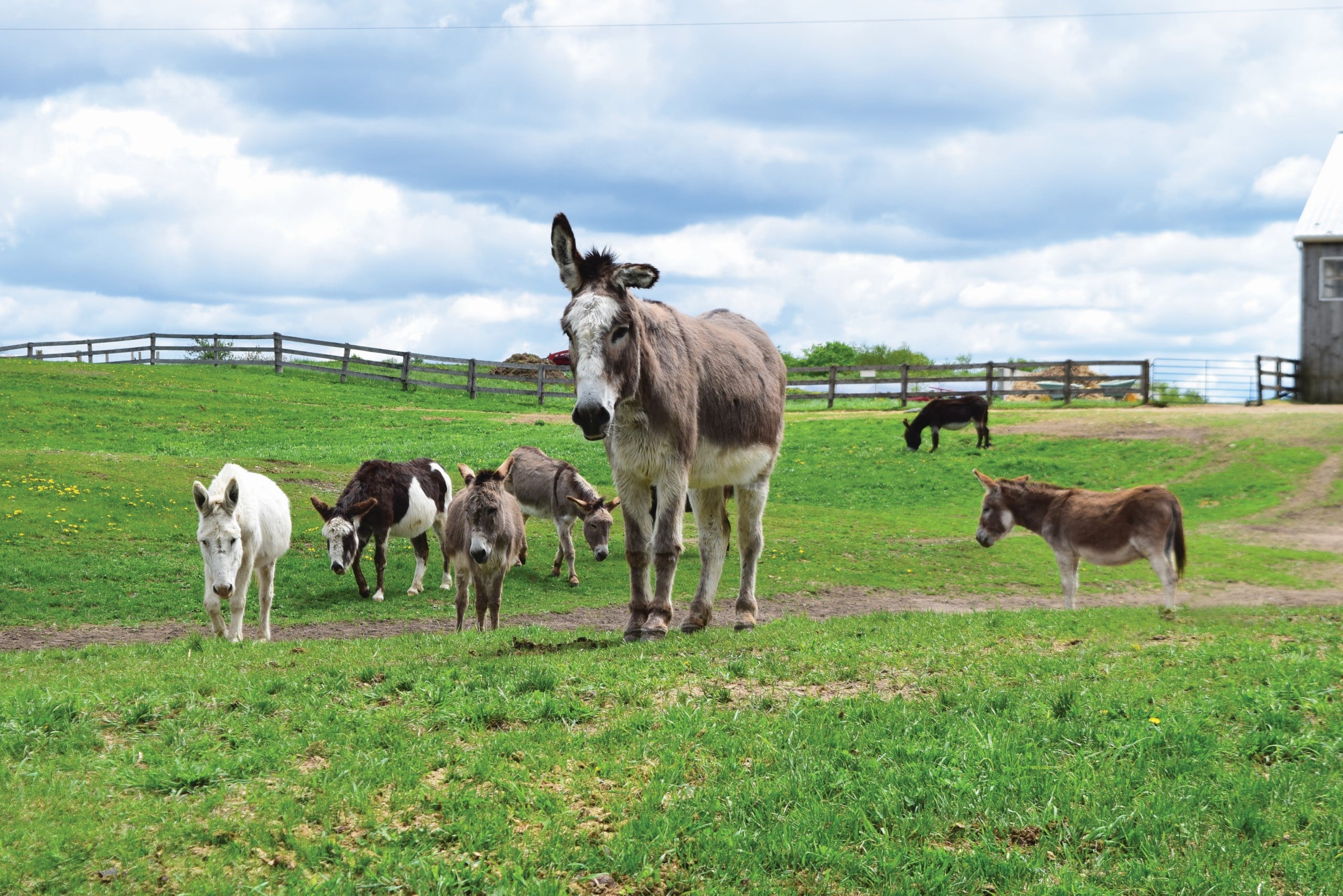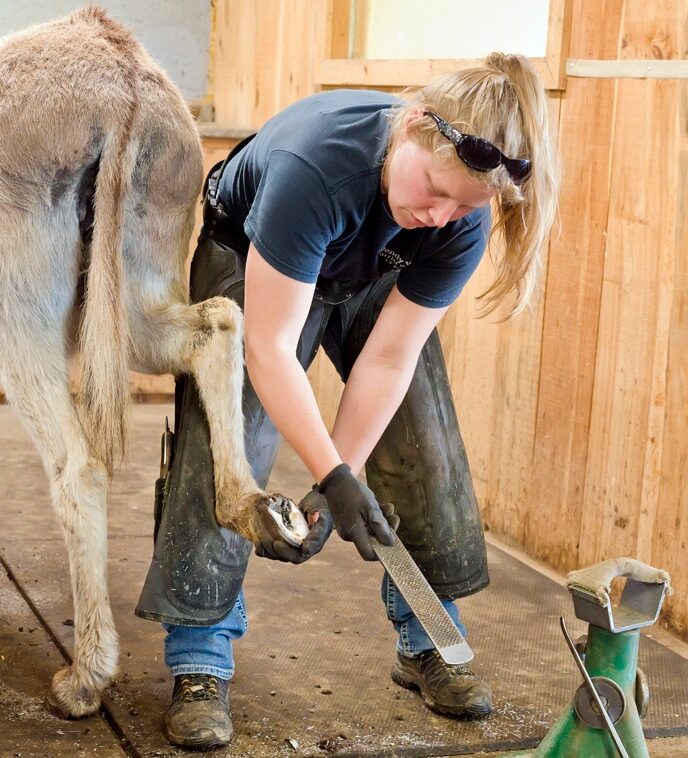This guide provides resources that touch on veterinary guidance, nutrition, hoof care, shelter, and training to help augment your knowledge as a donkey caretaker.
Regular care and when to call a vet
Regular veterinary care is crucial for maintaining a donkey’s health. Routine check-ups should include vaccinations for tetanus, flu, and distemper, as well as regular dental and fecal exams to detect parasites (The Open Sanctuary Project) (animalwised.com).
Donkeys can be stoic animals, often hiding signs of illness. Immediate veterinary attention is required if a donkey shows symptoms such as lethargy, loss of appetite, or unusual behaviour, as these can indicate serious conditions like colic or hepatic lipidosis (Springhill Equine Veterinary Clinic).
Nutrition: What to feed (and what not to feed)
A donkey’s diet should be rich in fibre and low in sugar to prevent obesity and other health issues. Ideal foods include barley straw and limited amounts of hay, with fresh water always available (animalwised.com) (Springhill Equine Veterinary Clinic).
Avoid feeding donkeys alfalfa, grains, or foods high in starch and sugar, as these can lead to serious health problems. Safe treats in moderation include carrots, apples, and bananas with the peel (Upper Peninsula Vet).
Hoof care
Proper hoof care is essential to a donkey’s health. Donkey hooves need regular trimming every 6-8 weeks, and it’s important to work with a farrier experienced in the unique structure of donkey hooves, which are more upright than horse hooves (The Open Sanctuary Project) (Springhill Equine Veterinary Clinic).
Farriers should avoid placing weight on the frog of the hoof, as this can cause discomfort and injury due to the donkey’s different hoof structure. Regular cleaning and inspection can prevent common issues like thrush and overgrowth.
Shelter and environment
Donkeys require a dry, sheltered environment to protect them from harsh weather. A well-ventilated barn, or a three-sided shelter in pasture, with clean, thick bedding helps maintain their health, especially in colder months (animalwised.com) (Upper Peninsula Vet). The shelter must be large enough for the donkeys to move around and include a water source that’s protected from freezing.
Training and Enrichment
Training and enrichment are important for a donkey’s mental and physical well-being. Basic training should include leading, standing for hoof care, and being comfortable with handling.
Donkeys also benefit from social interactions and activities that stimulate their minds, such as puzzle feeders and regular exercise (Springhill Equine Veterinary Clinic). Building a bond with your donkey through gentle handling and positive reinforcement will make care routines more manageable and enjoyable for both you and your donkey.
Providing proper care for donkeys involves a combination of regular veterinary visits, a balanced diet, attentive hoof care, suitable shelter, and enriching activities.
For more detailed information on each aspect of donkey care, explore the resources on our site and the ones linked throughout this guide.
